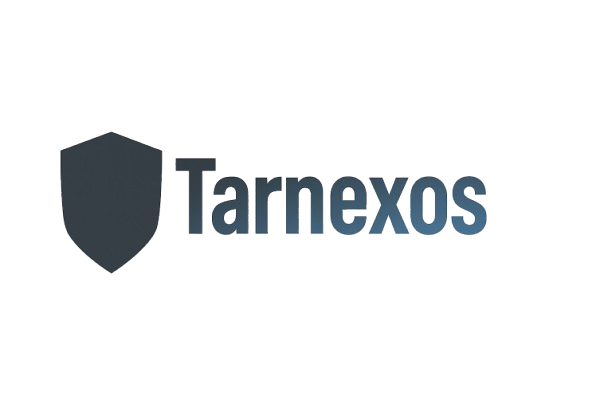Genomic medicine stands at the frontier of modern healthcare, promising to revolutionize how we diagnose, treat, and prevent diseases through personalized interventions based on individual genetic profiles.
As we navigate an era where scientific breakthroughs occur at unprecedented speed, the intersection of genomics and healthcare presents both extraordinary opportunities and significant challenges. The promise of tailored treatments, early disease detection, and preventive strategies could fundamentally transform global health outcomes, yet questions about affordability, accessibility, and equitable distribution remain critical concerns that demand our attention and innovative solutions.
🧬 The Revolutionary Promise of Genomic Medicine
Genomic medicine represents a paradigm shift from the traditional one-size-fits-all approach to healthcare. By analyzing an individual’s complete genetic makeup, healthcare providers can identify predispositions to certain diseases, predict medication responses, and develop targeted treatment plans with remarkable precision. This personalized approach has already demonstrated success in oncology, rare disease diagnosis, and pharmacogenomics, where genetic variations determine how patients metabolize medications.
The cost of sequencing a human genome has plummeted from approximately $100 million in 2001 to less than $1,000 today. This dramatic price reduction has made genomic testing increasingly feasible for clinical applications, opening doors that were previously accessible only to well-funded research institutions. However, the declining cost of sequencing represents just one piece of a complex economic puzzle that extends far beyond the laboratory.
Breaking Down the Economic Barriers
The economic landscape of genomic medicine encompasses multiple layers of investment, from research and development to clinical implementation and patient access. Pharmaceutical companies investing in precision medicine must navigate lengthy development timelines, regulatory hurdles, and uncertain market dynamics. Healthcare systems face difficult decisions about resource allocation, balancing genomic innovations against other pressing medical needs.
Infrastructure Investment and Long-term Returns
Implementing genomic medicine requires substantial upfront investment in technology, training, and infrastructure. Hospitals and clinics must acquire sequencing equipment, establish bioinformatics capabilities, and train healthcare professionals to interpret complex genetic data. Despite these initial costs, economic analyses suggest that genomic medicine can deliver significant long-term value through improved treatment outcomes, reduced adverse drug reactions, and prevention of costly disease complications.
Countries that have embraced genomic medicine strategically are already witnessing returns on their investments. The United Kingdom’s 100,000 Genomes Project, for instance, has not only advanced scientific understanding but also positioned the nation as a leader in genomic healthcare while creating economic opportunities in the biotechnology sector.
💰 Cost-Effectiveness in Real-World Healthcare Settings
Evaluating the cost-effectiveness of genomic medicine requires looking beyond immediate testing expenses to consider the entire care continuum. When genomic testing enables early cancer detection, the savings from avoiding late-stage treatments can be substantial. Similarly, pharmacogenomic testing that prevents severe adverse drug reactions eliminates hospitalization costs and improves patient quality of life.
Research has demonstrated compelling economic benefits in specific clinical scenarios. For hereditary cancer syndromes like BRCA mutations, genetic testing allows for targeted surveillance and preventive interventions that significantly reduce cancer incidence and associated treatment costs. In pediatric rare diseases, genomic diagnosis can end costly diagnostic odysseys, enabling families to access appropriate treatments and support services more quickly.
Preventing the Diagnostic Odyssey
Families affected by rare diseases often endure years of uncertainty, undergoing numerous tests and consultations before receiving an accurate diagnosis. This diagnostic odyssey carries enormous emotional and financial burdens. Genomic sequencing can compress this timeline dramatically, sometimes providing answers in weeks rather than years. The economic value extends beyond direct medical costs to include reduced caregiver burden, improved educational planning, and earlier access to therapeutic interventions.
🌍 Global Accessibility Challenges and Solutions
While genomic medicine holds tremendous promise, its benefits remain unevenly distributed across populations and geographic regions. High-income countries have integrated genomic technologies into healthcare systems, but many low and middle-income nations struggle to access even basic genetic services. This disparity threatens to widen existing health inequities, creating a genomic divide that mirrors broader patterns of global inequality.
Several factors contribute to limited accessibility in resource-constrained settings. Beyond equipment and technology costs, genomic medicine requires specialized expertise, robust data infrastructure, and regulatory frameworks that many countries lack. Additionally, most genomic research has focused on populations of European ancestry, limiting the clinical utility of genomic tools for diverse global populations.
Innovative Models for Expanding Access
Addressing these disparities requires creative approaches that leverage technology, partnerships, and policy innovation. Telemedicine platforms can connect patients in remote areas with genetic counselors and specialists. Cloud-based analysis tools reduce the need for expensive local computing infrastructure. International collaborations can share resources, knowledge, and data to benefit underserved populations.
Several initiatives demonstrate promising pathways forward. The Global Genomic Medicine Collaborative brings together institutions from around the world to share expertise and expand genomic services in low-resource settings. Mobile health technologies are enabling genetic screening programs in rural communities. Open-source bioinformatics tools are democratizing access to analytical capabilities previously available only to wealthy institutions.
The Role of Public Health Policy and Insurance Coverage
Government policies and insurance reimbursement decisions profoundly influence genomic medicine accessibility. When health insurance covers genomic testing for appropriate clinical indications, patient access improves dramatically. Conversely, lack of coverage creates financial barriers that exclude many patients from benefiting from these technologies.
Progressive policy frameworks are emerging that balance innovation encouragement with responsible resource allocation. Some countries have established national genomic medicine programs that integrate genetic services into universal healthcare systems. Others provide targeted coverage for high-impact applications while gathering evidence about broader implementation strategies.
Navigating Ethical and Privacy Considerations
Economic discussions about genomic medicine cannot ignore ethical dimensions that directly impact accessibility and adoption. Genetic privacy concerns, potential discrimination based on genetic information, and questions about data ownership create hesitation among patients and policymakers. Robust legal protections and transparent data governance frameworks are essential for building public trust and ensuring equitable access to genomic technologies.
The Genetic Information Nondiscrimination Act in the United States and similar legislation in other countries provide important protections against genetic discrimination in employment and insurance. However, gaps remain, and ongoing policy development must keep pace with rapidly evolving technologies and applications.
🔬 Pharmacogenomics: A High-Impact Application
Pharmacogenomics exemplifies how genomic medicine can deliver tangible economic and clinical value in everyday healthcare settings. By predicting how patients will respond to specific medications based on genetic variations, pharmacogenomic testing reduces trial-and-error prescribing, minimizes adverse reactions, and improves treatment adherence.
The economic case for pharmacogenomics is particularly strong for medications with narrow therapeutic windows or high toxicity risks. Studies have shown that preemptive pharmacogenomic testing can prevent hospitalizations, reduce healthcare costs, and improve patient outcomes across various therapeutic areas including psychiatry, cardiology, and oncology.
Implementing Pharmacogenomics at Scale
Several health systems have successfully integrated pharmacogenomic testing into routine clinical practice, demonstrating feasibility and value. These implementations typically involve multidisciplinary collaboration, clinical decision support tools embedded in electronic health records, and ongoing education for prescribers. As more evidence accumulates and costs continue declining, pharmacogenomics is poised for broader adoption that could benefit millions of patients annually.
Building Diverse and Inclusive Genomic Databases
The effectiveness of genomic medicine depends fundamentally on the diversity of genomic databases used to interpret test results. Currently, genomic research disproportionately represents individuals of European ancestry, creating significant limitations for other populations. Genetic variants may have different clinical significance across ancestral backgrounds, and underrepresentation in research databases can lead to missed diagnoses or inappropriate treatment recommendations.
Addressing this challenge requires intentional efforts to include diverse populations in genomic research. Community engagement, culturally appropriate recruitment strategies, and benefit-sharing arrangements can help build trust and participation among historically marginalized communities. Several large-scale initiatives, including the All of Us Research Program, are working to create more representative genomic resources that will improve precision medicine for everyone.
💡 Technology Innovation Driving Affordability
Continuous technological advancement remains crucial for improving genomic medicine accessibility. Next-generation sequencing technologies are becoming faster, more accurate, and less expensive. Artificial intelligence and machine learning are enhancing our ability to interpret complex genomic data and identify clinically relevant patterns. Point-of-care genetic testing devices are bringing genomic capabilities closer to patients, reducing logistical barriers and turnaround times.
These innovations are not merely incremental improvements but transformative changes that expand what’s possible in genomic healthcare. Portable sequencing devices enable genetic testing in remote locations without sophisticated laboratory infrastructure. Cloud computing platforms allow institutions with limited local resources to access powerful analytical tools. Open-source software development democratizes access to cutting-edge bioinformatics capabilities.
The Promise of Direct-to-Consumer Genomics
Direct-to-consumer genetic testing companies have made genetic information accessible to millions of people at relatively low cost. While these services face criticism regarding clinical utility and interpretation quality, they have undeniably increased public awareness and engagement with genomics. As regulations evolve and scientific validation improves, direct-to-consumer genomics may play an important role in democratizing access to genetic information, particularly for populations underserved by traditional healthcare systems.
Workforce Development and Education Imperatives
Realizing the full potential of genomic medicine requires a healthcare workforce equipped with genomic competencies. Current training programs often inadequately prepare clinicians to integrate genetic information into clinical decision-making. Genetic counselors remain in short supply, particularly in underserved areas. Addressing these workforce challenges is essential for translating genomic discoveries into improved patient care.
Educational initiatives must target multiple levels, from undergraduate medical education to continuing professional development for practicing clinicians. Interprofessional education models that bring together physicians, nurses, pharmacists, and genetic counselors can foster collaborative approaches to genomic medicine. Online learning platforms and digital resources can extend educational opportunities beyond traditional academic centers.
🎯 Strategic Priorities for a More Equitable Future
Creating a future where genomic medicine benefits all populations requires coordinated action across multiple domains. Policymakers must develop frameworks that encourage innovation while ensuring equitable access. Healthcare systems need sustainable financing models that support genomic medicine implementation. Researchers must prioritize diversity and inclusion in genomic studies. Industry partners should pursue pricing strategies that balance profitability with affordability.
International collaboration will be essential for sharing knowledge, resources, and best practices. Technology transfer initiatives can help build genomic capabilities in resource-limited settings. Regional centers of excellence can provide services and training for surrounding areas. South-South cooperation among developing nations can leverage shared experiences and adapt solutions to similar contexts.
Measuring Progress and Impact
As genomic medicine expands globally, robust metrics are needed to track progress toward accessibility goals and identify persistent gaps. Health equity indicators should monitor whether genomic benefits reach underserved populations. Economic evaluations should assess cost-effectiveness across diverse healthcare settings. Patient-reported outcomes should capture the real-world impact on quality of life and healthcare experiences.
The Path Forward: Integration and Implementation
The journey toward universal access to genomic medicine is complex and ongoing, requiring sustained commitment from multiple stakeholders. Success will depend not only on technological advancement but also on addressing social, economic, and political barriers that limit accessibility. Healthcare systems must thoughtfully integrate genomic tools into existing care pathways, ensuring that implementation enhances rather than disrupts clinical workflows.
Implementation science research can identify effective strategies for translating genomic discoveries into routine practice. Pilot programs in diverse settings can generate evidence about what works in different contexts. Learning health systems that continuously evaluate and refine genomic medicine applications will accelerate progress and maximize value.
The economic case for genomic medicine continues strengthening as evidence accumulates about clinical benefits and cost-effectiveness. However, realizing this potential requires moving beyond narrow cost-benefit calculations to consider broader societal impacts. Health equity, patient empowerment, and prevention of suffering represent values that transcend purely economic considerations yet fundamentally shape how we approach healthcare innovation.

🌟 Envisioning a Genomically-Informed Healthcare System
Looking forward, we can envision a healthcare system where genomic information routinely informs clinical decisions across all medical specialties. Newborn screening programs incorporate expanded genomic analysis to identify actionable conditions early in life. Primary care providers access genetic risk information to personalize prevention strategies. Pharmacists use pharmacogenomic data to optimize medication selection and dosing. Cancer patients receive treatments matched to the specific molecular characteristics of their tumors.
This vision is not merely aspirational but increasingly achievable as technologies mature and evidence grows. The falling costs of genomic sequencing, coupled with advances in interpretation and clinical decision support, are making comprehensive genomic medicine economically viable. What remains is ensuring that these capabilities reach all who could benefit, regardless of geography, socioeconomic status, or ancestry.
Achieving truly universal access to genomic medicine will require addressing fundamental questions about healthcare as a human right and societal responsibilities to ensure equitable access to medical innovations. These questions extend beyond genomics to broader debates about health justice and resource allocation. However, the transformative potential of genomic medicine makes these discussions particularly urgent and consequential.
The economic impact of genomic medicine encompasses both measurable healthcare cost reductions and less tangible but equally important improvements in human flourishing. When accurate genetic diagnoses end years of medical uncertainty, when pharmacogenomic testing prevents devastating adverse drug reactions, when preventive interventions guided by genetic risk reduce disease burden, the value extends far beyond what conventional economic analyses capture. These human dimensions must remain central as we work toward making genomic medicine accessible to all.
As we stand at this pivotal moment in medical history, the choices we make about genomic medicine implementation will shape health outcomes for generations to come. By prioritizing accessibility alongside innovation, equity alongside excellence, and collaboration alongside competition, we can unlock the full potential of genomic medicine to create a healthier, more just future for all humanity. The scientific tools are increasingly within reach; what we need now is the collective will to deploy them in service of universal health and wellbeing. 🌐
Toni Santos is a biomedical researcher and genomic engineer specializing in the study of CRISPR-based gene editing systems, precision genomic therapies, and the molecular architectures embedded in regenerative tissue design. Through an interdisciplinary and innovation-focused lens, Toni investigates how humanity has harnessed genetic code, cellular programming, and molecular assembly — across clinical applications, synthetic organisms, and engineered tissues. His work is grounded in a fascination with genomes not only as biological blueprints, but as editable substrates of therapeutic potential. From CRISPR therapeutic applications to synthetic cells and tissue scaffold engineering, Toni uncovers the molecular and design principles through which scientists reshape biology at the genomic and cellular level. With a background in genomic medicine and synthetic biology, Toni blends computational genomics with experimental bioengineering to reveal how gene editing can correct disease, reprogram function, and construct living tissue. As the creative mind behind Nuvtrox, Toni curates illustrated genomic pathways, synthetic biology prototypes, and engineering methodologies that advance the precision control of genes, cells, and regenerative materials. His work is a tribute to: The transformative potential of CRISPR Gene Editing Applications The clinical promise of Genomic Medicine and Precision Therapy The design innovations of Synthetic Biology Systems The regenerative architecture of Tissue Engineering and Cellular Scaffolds Whether you're a genomic clinician, synthetic biologist, or curious explorer of engineered biological systems, Toni invites you to explore the cutting edge of gene editing and tissue design — one base pair, one cell, one scaffold at a time.




